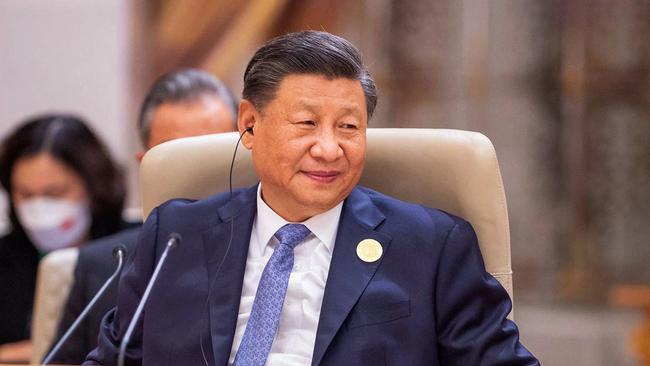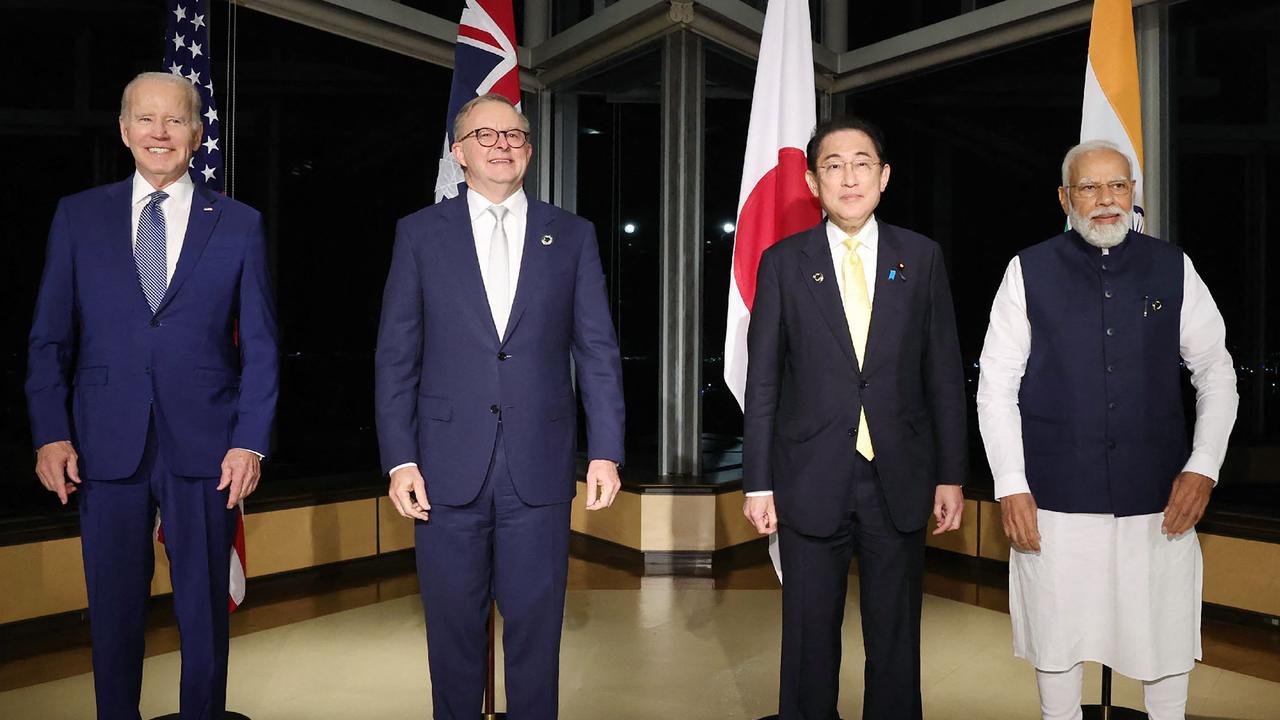Beijing bristles over AUKUS expansion plan
China has denounced a proposal to add Japan and India to AUKUS, accusing Washington, Canberra and London of ‘fuelling military confrontation’.

Beijing has denounced a proposal to add Japan and India to the AUKUS defence technology pact, accusing Washington, Canberra and London of “fuelling military confrontation through military collaboration”.
China’s Foreign Ministry said it was “seriously concerned about and opposed to AUKUS”, in comments made a month before the Albanese government will reveal which nuclear-powered submarine Australia will acquire.
Asked about a proposal by the chair of Britain’s defence select committee for Japan and India to join the AUKUS pact — first revealed in The Australian — China’s Foreign Ministry said the original three country security partnership was already destabilising the region.
“AUKUS is essentially about fuelling military confrontation through military collaboration. It is apparently driven by Cold War thinking,” China’s Foreign Ministry spokeswoman Mao Ning said on Wednesday evening.
“It creates additional nuclear proliferation risks, exacerbates [the] arms race in the Asia-Pacific and hurts regional peace and stability,” she said.
The comments come days before Trade Minister Don Farrell is expected to meet virtually with his Chinese counterpart, for what would be their first substantial conversation since the Albanese government was elected in May. Beijing has recently allowed the first purchases of Australian coal by Chinese firms. Australian lobster farmers are hopeful they may soon be allowed legal access to China’s market.
Beijing has opposed AUKUS ever since it was revealed in September 2021. China’s diplomats have ramped up their opposition to the agreement, even as they have worked with the Albanese government to improve other areas of the bilateral relationship.
That latest spray was delivered as Foreign Minister Penny Wong and Defence Minister Richard Marles met with their British counterparts in London.
In a speech delivered on Tuesday, Senator Wong said the “historic AUKUS partnership” was a key part of Canberra’s efforts to contribute to a “strategic equilibrium” in the region.
“Australia sees our investment in our future defence capabilities as essential for deterring conflict and maintaining a strategic balance in the Indo-Pacific,” she said.
“A balance where regional peace prevails and sovereignty of all nations – large and small – is preserved.”
Australia’s Foreign Minister singled out North Korea and China as key threats to that stability.
“Our region is home to the largest military build-up anywhere in the world … with limited transparency and reassurance,” she said.
“North Korea conducted more than 60 ballistic missile launches last year. And last August, five Chinese ballistic missiles were reported to have fallen in Japan’s exclusive economic zone.”
Efforts to deter Chinese military aggression have increased dramatically since Russia invaded Ukraine last February.
On Tuesday, US national security adviser Jake Sullivan met his Indian counterpart Ajit Doval in Washington where the two countries unveiled co-operation in artificial intelligence, quantum computing, semiconductors and 5G wireless networks. They also created a mechanism to allow joint weapons production.
“This is another big foundational piece of an overall strategy to put the entire democratic world in the Indo-Pacific in a position of strength,” Mr Sullivan said.
Beijing has also been concerned about the meetings this week between NATO Secretary-General Jens Stoltenberg, Japanese Prime Minister Fumio Kishida and other top security officials in Tokyo.
China’s Foreign Ministry bristled after Mr Stoltenberg warned that a crisis similar to Russia’s war in Ukraine “could happen in East Asia tomorrow”. Mr Kishida has made similar comments amid rising concern in Tokyo about Beijing’s intentions towards Taiwan.
“NATO has constantly sought to reach beyond its traditional defence zone and scope, strengthen military and security ties with Asia-Pacific countries and fabricated ‘China threats,’” said Chinese Foreign Ministry spokesman Mao.
“The Asia-Pacific is not a battlefield for geopolitical contest and does not welcome the Cold-War mentality and bloc confrontation,” she said.



